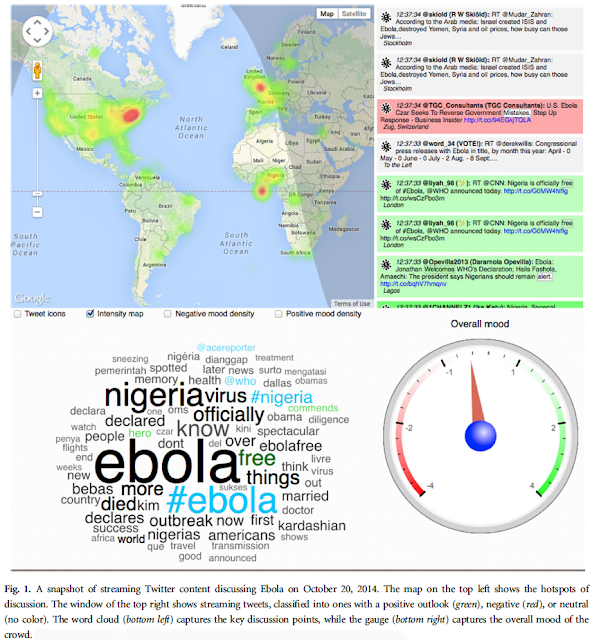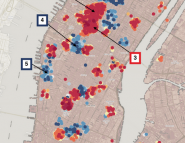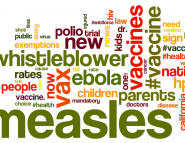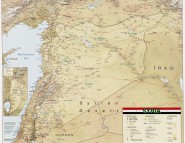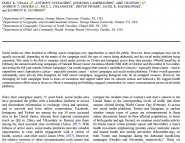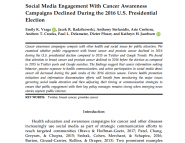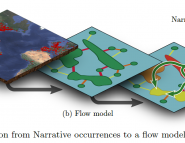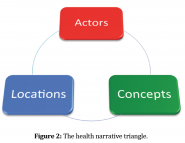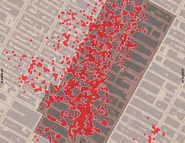Posted: March 1, 2016 at 1:31 pm, Last Updated: January 27, 2017 at 3:26 pm
 We recently co-authored a paper entitled “Lessons from the Ebola Outbreak: Action Items for Emerging Infectious Disease Preparedness and Response” in EcoHealth” with several other researchers from George Mason University.
We recently co-authored a paper entitled “Lessons from the Ebola Outbreak: Action Items for Emerging Infectious Disease Preparedness and Response” in EcoHealth” with several other researchers from George Mason University.
In the paper we discuss the recent Ebola outbreak in West Africa, which was the longest, largest and most widespread of its type up to now. Now as it wanes, we argue in the paper that it is time for the international scientific community to reflect on how to improve the detection of and coordinated response to future epidemics. Our interdisciplinary team (17 authors! from a varity of Deparments and Colleges from Mason including Global and Community Health, Environmental Science and Policy, Biomedical Research, Systems Biology, Computational Social Science, Geography and GeoInformation Science, Communication and Mathematical Sciences) identified key lessons learned from the Ebola outbreak that can be clustered into three areas: 1) environmental conditions related to early warning systems, 2) host characteristics related to public health, and 3) agent issues that can be addressed through the laboratory sciences”. Below is the abstract for the paper:
As the Ebola outbreak in West Africa wanes, it is time for the international scientific community to reflect on how to improve the detection of and coordinated response to future epidemics. Our interdisciplinary team identified key lessons learned from the Ebola outbreak that can be clustered into three areas: environmental conditions related to early warning systems, host characteristics related to public health, and agent issues that can be addressed through the laboratory sciences. In particular, we need to increase zoonotic surveillance activities, implement more effective ecological health interventions, expand prediction modeling, support medical and public health systems in order to improve local and international responses to epidemics, improve risk communication, better understand the role of social media in outbreak awareness and response, produce better diagnostic tools, create better therapeutic medications, and design better vaccines. This list highlights research priorities and policy actions the global community can take now to be better prepared for future emerging infectious disease outbreaks that threaten global public health and security.
Keywords: Ebola infection, emerging infectious diseases, epidemics, surveillance, one health, public health.
Full reference:
Jacobsen, K.H., Aguirre, A.A., Bailey, C.L., Baranova, A.V., Crooks, A.T., Croitoru, A., Delamater, P.L., Gupta, J., Kehn-Hall, K., Narayanan, A., Pierobon, M., Rowan K.E., Schwebach, J.R., Seshaiyer, P., Sklarew, D.M., Stefanidis, A. and Agouris, P. (2016), Lessons from the Ebola Outbreak: Action Items for Emerging Infectious Disease Preparedness and Response, EcoHealth. DOI: 10.1007/s10393-016-1100-5 (pdf)
